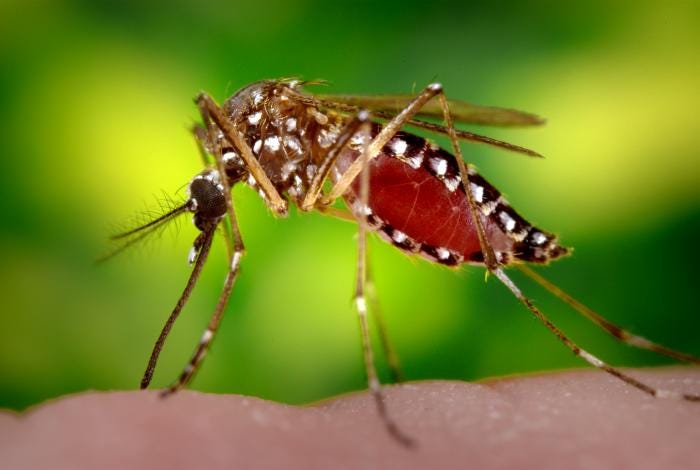After reporting a record 9.8 million dengue fever cases and more than 5,600 deaths, the Brazilian government (the Ministry of Health) is investing more than R$1.5 billion (approximately $250 million) for the 2024/2025 seasonal period, which represents a 50% increase compared to the previous period. The resources are being used by states, municipalities and the Federal District to reinforce surveillance actions and improve care for the population.
The funding for the cycle includes an increase in investment in new technologies to combat the disease, such as the Wolbachia method , larvicide dissemination stations and sterile mosquitoes. In addition, the Ministry of Health is ensuring the continuity of dengue vaccination for the eligible public, insecticides and biolarvicides. Resources were also allocated to the acquisition of laboratory supplies for testing for arboviruses in the states. Part of the investment also includes emergency ordinances, with the aim of responding to outbreaks, research and development projects, among other initiatives.
The Wolbachia method will be expanded in the country in the 2024/2025 seasonal period, including new municipalities. This is a bacterium present in about 60% of insects, including some mosquitoes. However, it is not found naturally in Aedes aegypti. When present in this mosquito, the bacterium prevents the dengue, zika , chikungunya and yellow fever viruses from developing inside it, contributing to the reduction of diseases.
The resources will also support the expansion of the healthcare network to address the increase in cases of arboviruses, such as dengue, chikungunya and zika. The Deputy Secretary of Health and Environmental Surveillance (SVSA) , Rivaldo Venâncio, emphasizes that the transfers will be made according to local needs. “The goal is to avoid overloading healthcare networks, anticipating actions before municipalities declare a public health emergency,” he explains.
Regarding vaccination, to date, 1,921 municipalities are being covered in all Brazilian states and the Federal District. There are 6.5 million doses, enough to vaccinate 3.2 million children and adolescents between the ages of 10 and 14. For 2025, the ministry has already contracted another 9.5 million doses - the maximum supply capacity of the only global producer of the vaccine.
New actions in progress
Among the actions to be implemented in 2024 is expanding access to the care network, preventing deaths from dengue. In municipalities where the number of cases increases, the Ministry of Health may suggest extending the opening hours of Basic Health Units (UBSs) and Emergency Care Units (UPAs), offering care in additional shifts, in addition to organizing rooms for hydration of patients with more serious conditions.
Technologies and new control methods
In addition to the assistance actions, part of the resources will be used to implement new technologies to control the Aedes aegypti vector. These include, in addition to Wolbachia, sterile insects, indoor residual spraying and larvicide dissemination stations. In addition, the use of Bacillus Thuringienses Israelensis (BTi) will be expanded to monitor the spread of the mosquito. The expectation is to increase the number of municipalities benefiting from these technologies.
Challenges and society participation
Venâncio stressed that the challenges go beyond epidemiological and logistical aspects. Active participation by the population is essential for the success of mosquito control strategies, since mosquitoes proliferate in domestic environments. “States and municipalities alone will not be able to reduce the impact of arboviruses. Changing the population’s behavior, taking better care of their surroundings, is essential,” emphasized the deputy secretary.
The Ministry of Health warns that the most effective way to prevent dengue fever continues to be to eliminate mosquito breeding sites, since the mosquito thrives in stagnant water. Simple measures such as covering water tanks, cleaning drains and sinks, covering animals' water bowls and avoiding the accumulation of garbage are essential to prevent the proliferation of the vector.
In this sense, the Ministry launched a national campaign to raise awareness and mobilize the population to reduce cases and deaths caused by arboviruses. The mobilization encourages the population to dedicate 10 minutes per week to controlling the insect's breeding grounds.
In addition, the department recommends that the population carry out a weekly inspection of their homes to identify possible outbreaks and receive agents to combat endemic diseases. The use of repellents and the installation of screens on doors and windows are also important protective measures.





